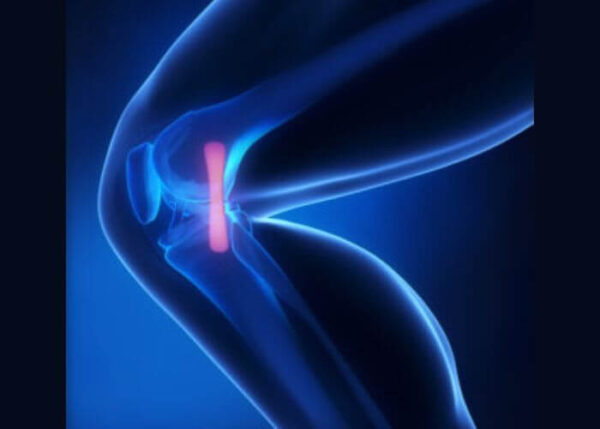MCL Injury Specialist

Are you an athlete who participates in contact sports, or jumping and landing? If so, you may be at risk of tearing your MCL. An MCL injury can be sustained during an awkward landing in athletic activities, from a dirt biking injury, or from a tackle in football. MCL injury specialist, Dr. Matthew Provencher provides diagnosis and both surgical and nonsurgical treatment options for patients in Vail who have an MCL injury. Contact Dr. Provencher’s team today!
What is an MCL Injury?
The medial collateral ligament (MCL) is one of the four main ligaments found within the knee joint. The MCL begins at the end of the femur (thighbone) and extends to the top of the tibia (shinbone). Located on the inside of the knee, the ligament provides stability when the knee is moved from side to side and protects against widening of the inside of the joint. A patient may experience an MCL injury when extreme force is applied to the outside portion of the knee, such as when a football player is tackled with impact on the lateral side of the joint. A medial collateral ligament tear may occur when the ligament is stretched beyond its normal range of motion. If this occurs, Dr. Matthew Provencher, orthopedic knee specialist serving the Vail, Aspen, Colorado Springs and Denver, Colorado communities, is available to diagnose and treat the MCL tear and return patients to an active, pain-free lifestyle.
An MCL injury is quite common and typically occurs during a hard hit, fall onto the outside of the knee or an awkward landing during sports activities. A medial collateral ligament tear is classified in a Grade 1-3 system, ranging from a stretch to a complete MCL tear.
- Grade 1- An incomplete, mild tear where the MCL is stretched but still intact
- Grade 2- An incomplete, partial tear that creates pain and instability when a patient attempts to pivot
- Grade 3- A complete MCL tear that causes extreme pain within the knee joint

What are Symptoms of an MCL Injury?
The hallmark symptom of an MCL injury is knee pain. Patients may also experience swelling, bruising and instability when weight is placed on the injured knee.
How to Know if you Have an MCL Injury
Dr. Provencher will determine an MCL injury with a combination of a physical examination, medical review, a series of x-rays and an MRI scan. The physical examination is designed to test range of motion, function, strength and overall pain following a medial collateral ligament tear. Dr. Provencher will view the x-rays in great detail to rule out damage to the bony structures. He will view the MRI to assess severity of ligament damage and to confirm no other soft tissues were injured during the MCL tear.
What are MCL Treatment Options?
Treatment of a medial collateral ligament tear depends on severity of damage to the ligament and patient’s overall knee function.
Does an MCL Injury Require Surgery?
An incomplete or partial MCL tear is commonly treated with the RICE (rest, ice, compression, elevation) method, bracing and strict physical therapy protocols prescribed by Dr. Provencher. It is strongly suggested that patients work with the in-house physical therapists at Howard Head Sports Medicine to optimize their rehabilitation.
What is an MCL Reconstruction?
If the MCL injury failed to respond to conservative treatment measures or if the tear is too severe, a surgical procedure may be recommended by Dr. Provencher. He commonly utilizes an open procedure to repair or reconstruct the damaged MCL. If possible, he will perform a repair and suture the torn ligament to promote healing. If this is not possible, he will perform either an augmentation (suturing the remaining ligament and reinforcing with a graft) or a complete reconstruction (reconstructing the entire ligament with a graft), depending on injury severity. The grafts are typically taken from the patient or are a donated graft from another individual. Dr. Provencher will explain the pros and cons of each graft option in great detail at a patient’s first consultation.
For additional resources on an MCL injury, such as a medial collateral ligament tear, please contact the orthopedic practice of Dr. Matthew Provencher, knee specialist located in the Vail, Aspen, Colorado Springs and Denver, Colorado area.